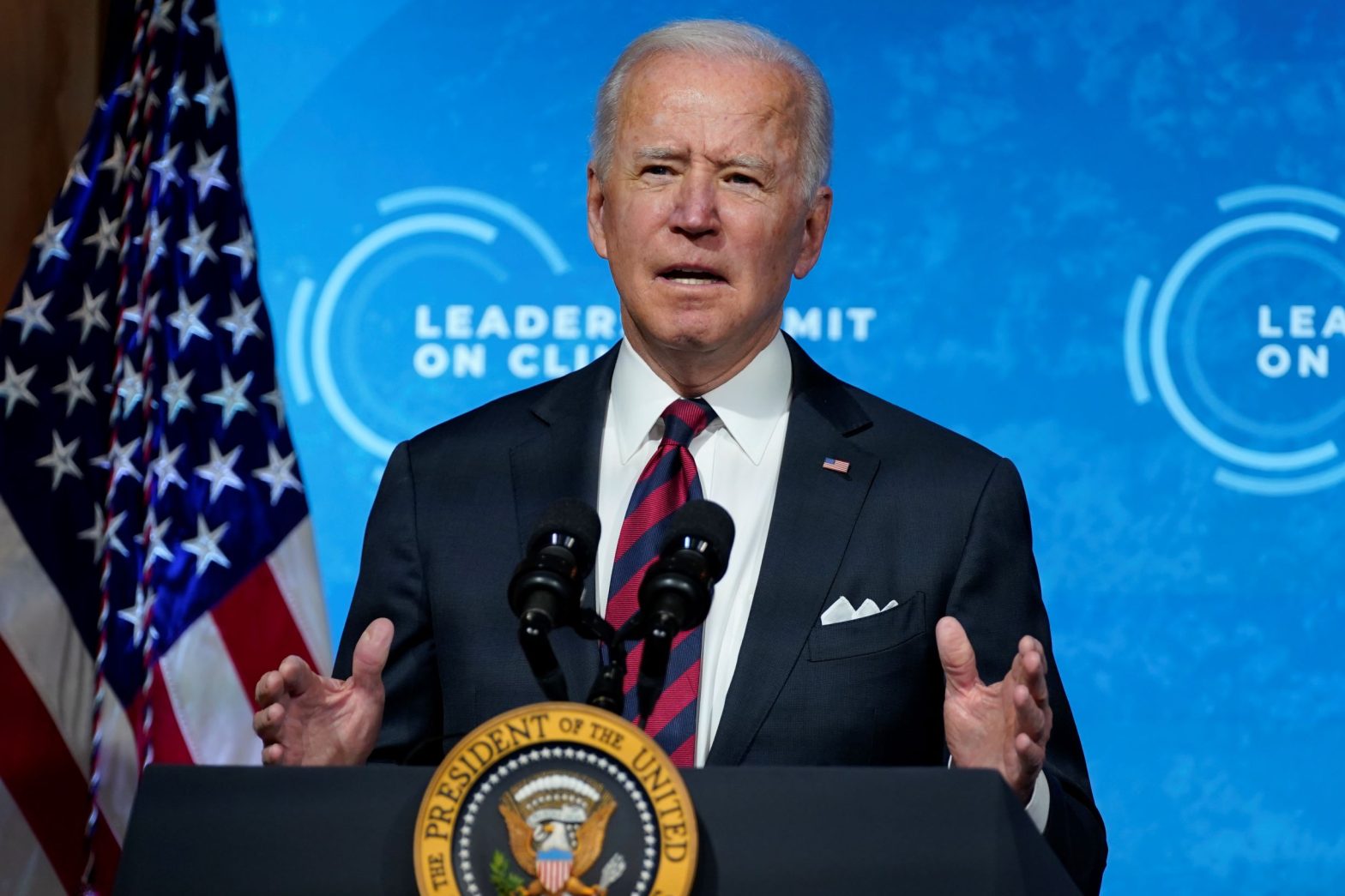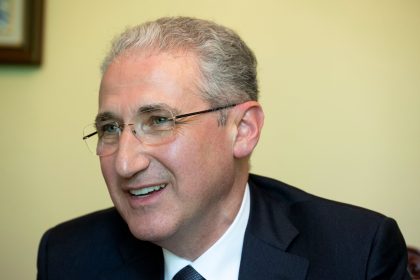Biden Aims For U.S. ‘Leadership’ On Climate, Announces Reduction in Emissions

At a virtual summit on climate change attended by 40 world leaders on Thursday, President Joseph Biden announced that the U.S. would reduce its greenhouse gas emissions by half over the next decade.
Biden’s plan promises to lower greenhouse gas emissions 50-52% below 2005 levels by 2030 as part of the new “ambitious” initiative connected to the U.S.’s reentry into the Paris Agreement.
The Summit on Climate, taking place Thursday and Friday of this week, is part of the administration’s attempt to shore up a “stronger” climate agenda in the lead-up to the UN’s Climate Change Conference, COP26, which will take place in November in Glasgow, Scotland.
“The new U.S. emissions target raises the bar for other countries as we head toward the UN climate summit in Glasgow. The message to other major emitters is loud and clear: It’s your move next,” commented Interim President and CEO of the nonprofit World Resources Institute Manish Bapna.
Bapna called the goal “ambitious and attainable,” but argued that the U.S. will need to step up investments in the developing world. There will also need to be strong policies and investments from the public and private sectors to “accelerate the deployment of clean energy, zero-emission vehicles, forest restoration, and energy efficiency.”
This is almost twice the reduction in emissions set for 2025 by the Obama administration, commented a written statement from the institute.
The announcement is part of a coordinated strategy trying to reassert American preeminence on climate issues.
In a press conference earlier this week at the Chesapeake Bay Foundation’s Philip Merrill Environmental Center, U.S. Secretary of State Anthony Blinken laid out the Biden administration’s case for America to embrace its role as a “climate leader.”
Climate is a threat that must be addressed, but it also creates an opportunity for the U.S. to establish leadership in the global shift towards clean energy and green infrastructure, according to Blinken. At the moment, he said, the U.S. is lagging behind countries like China, which holds nearly a third of the renewable energy patents in the world.
“If we don’t catch up, America will miss the chance to shape the world’s climate future in a way that reflects our interests and values, and we’ll lose out on countless jobs for the American people,” Blinken said.
The “core principles” of the American approach, Blinken says, will focus on increasing clean energy research in a way that promotes not only growth but equity.
Assessing Blinken’s speech, the Atlantic Council, an international affairs think tank, said that it touches on an “international issue with local implications,” describing it as an “effective” way of framing the challenges of climate change and the importance of the U.S. responding effectively to it.
“The geopolitics of industrial leadership, trade, and global supply chains will run throughout the next phase of climate action, as raised ambition for the deployment of decarbonization technologies and renewable energy resources at an ever-greater scale is accompanied by growing interest around the world in establishing a stake in their development,” a written comment from the Atlantic Council said.
The Biden administration linked climate and national security even before Blinken’s speech, which came a few months after the U.S. Department of Defense said it would “prioritize” climate considerations in risk assessments and other national security-related issues. That document also described the cumulative impacts of natural disasters, increased insecurity, and the opening of the Arctic.
“We know first-hand the risk that climate change poses to national security because it affects the work we do every day,” Secretary of Defense Lloyd J. Austin III said.
“If America fails to lead the world on addressing the climate crisis, we won’t have much of a world left. If we succeed, we’ll capitalize on the greatest opportunity to create quality jobs in generations, we’ll build a more equitable, healthy, and sustainable society, and we’ll protect this magnificent planet. That’s the test we face right now,” Blinken said during his speech.
























